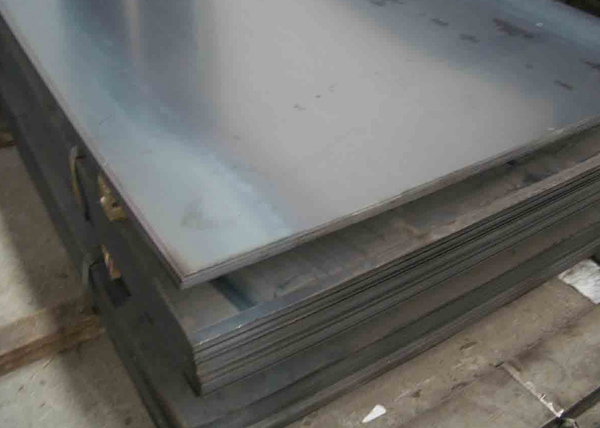A573
This specification covers structural quality carbon-manganese-silicon steel plates in three tensile strength ranges intended primarily for service at atmospheric temperatures where improved notch toughness is important. If the steel is to be welded, a welding procedure suitable for the grade of steel and intended use or service shall be utilized. The steel shall be made by fine grain practice. Heat and product analysis shall conform to the chemical composition requirements prescribed for carbon, manganese, phosphorus, sulfur, and silicon. The tension test specimen shall conform to the tensile requirements including tensile strength, yield point, and elongation.

Properties of ASTM A573, Grade 70
| Properties | Metric | English | Comments |
| Density | 7.85 g/cc | 0.284 lb/in2 | Typical of ASTM Steel |
| Tensile Strength, Ultimate | 485-620 MPa | 70300-89900 psi | |
| Tensile Strength, Yield | 290 MPa | 42100 psi | |
| Elongation at Break | 18% | 18% | in 200 mm |
| Bulk Modulus | 140 GPa | 20300 ksi | Typical for steel |
| Shear Modulus | 80.0 GPa | 11600 ksi | Typical for steel |
| Carbon, C | 0.28% | 0.28% | may vary with plate thickness |
| Iron, Fe | 98% | 98% | as balance |
| Manganese, Mn | 0.85-1.2% | 0.85-1.2% | |
| Phosphorous, P | 0.04% | 0.04% | |
| Silicon, Si | 0.15-0.40% | 0.15-0.40% | |
| Sulfur, S | 0.05% | 0.05% |
This specification covers structural quality carbon-manganese-silicon steel plates in three tensile strength ranges intended primarily for service at atmospheric temperatures where improved notch toughness is important.
If the steel is to be welded, it is presupposed that a welding procedure suitable for the grade of steel and intended use or service will be utilized. See Appendix X3 of Specification A6/A6M for information on weldability.



